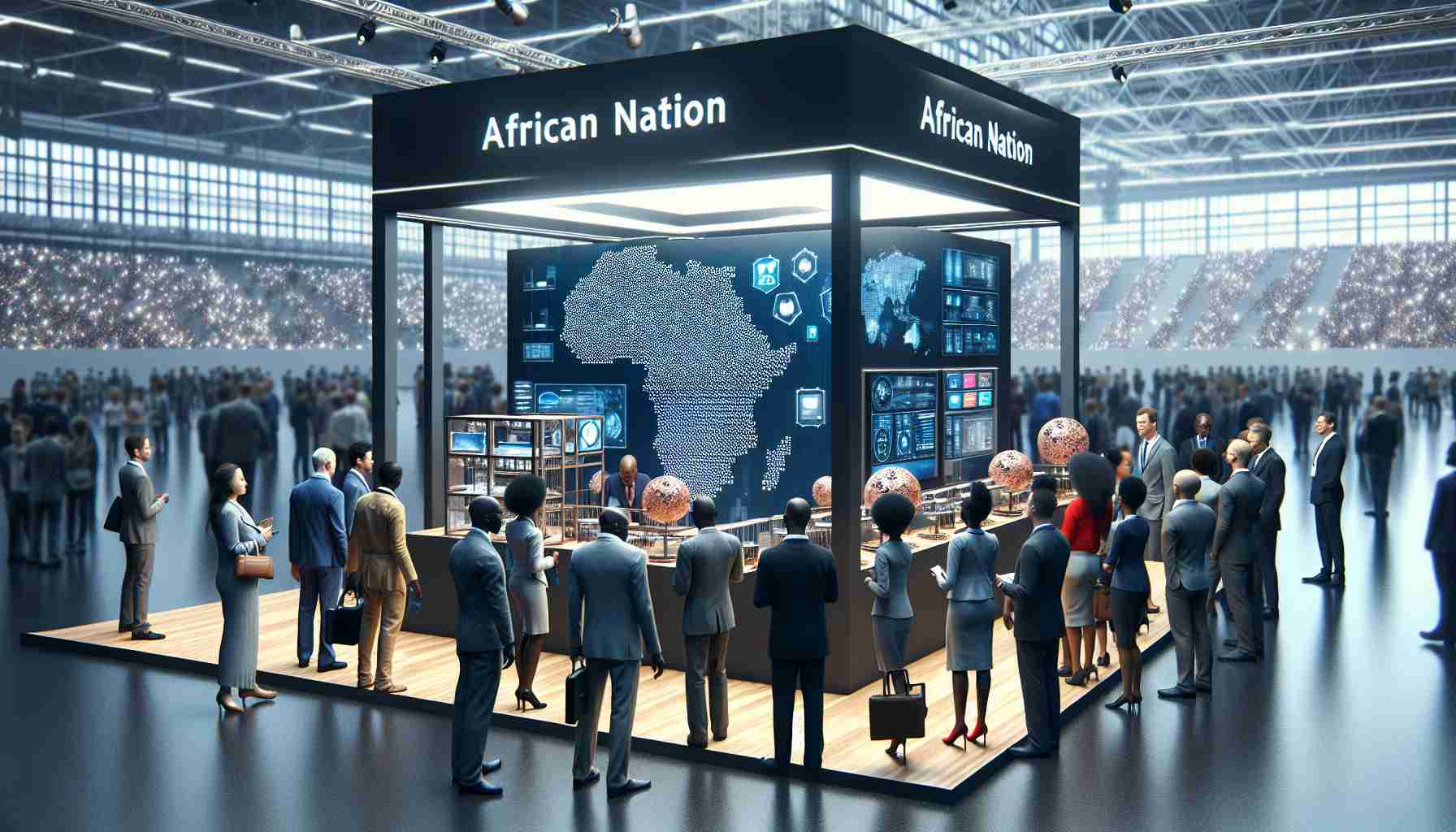Africa Showcases Innovative Prowess at European Tech Fair

Paris’s Porte de Versailles recently played host to Europe’s largest tech fair, a four-day event spotlighting world-class innovation. Africa, a breeding ground for talent, made a strong showing, particularly Algeria which aims to establish itself as a regional innovation hub and reverse the brain drain trend. Sid Ali Zerrouki, General Manager of Algeria Venture, asserts that the country seeks to adopt and utilize new technologies to become a leader not just in Africa, but across the Mediterranean in innovation.
In a promising reversal of brain drain, one in three Algerian startups is now founded by an international entrepreneur, illustrating a commitment by Algerian leaders to foster growth and international development while maintaining a strong national R&D and growth team.
Fintech, green tech, and e-commerce are among the sectors benefiting from the rise of artificial intelligence (AI), which could add $15.7 trillion to the global economy by 2030, with Africa potentially contributing $1.2 trillion. François Bitouzet, Director General of Vivatech, is optimistic about the potential for new powerhouse tech companies to emerge from the continent.
Vivatech serves as a powerful stimulant for African startups, which gain recognition through the annual Africatech Awards. Thalia Psychotherapy, one of the day’s winners, aims to use AI to make mental well-being services accessible and affordable. Junior Associate Wamuyu Wanjohi of Thalia shared that their goal is to further develop their website, hoping to reach Africans in the diaspora and offer easy access to mental health services.
Representatives from 37 African countries participated in the event, making a clear statement of Africa’s vibrant and thriving digital innovation ecosystem—a continent that is positioning itself as a leader in digital innovation on the world stage.
Relevant Additional Information:
– Africa has a rapidly growing population with a median age of 19 years, offering a large and youthful market that is increasingly tech-savvy and represents a significant opportunity for growth in digital services and startups.
– Mobile technology has seen explosive growth in Africa, with the proliferation of mobile money services like M-Pesa in Kenya revolutionizing payment systems and banking in parts of the continent where traditional banking infrastructure is limited.
– The African Continental Free Trade Area (AfCFTA), launched in January 2021, has the potential to create a single market for goods and services across 54 countries, facilitating easier movement for entrepreneurs and startup activity.
– Many African governments are implementing policies to support the digital economy, including investments in internet infrastructure and education to boost technological skills and innovation.
Important Questions and Answers:
– Q: Why is it significant that Africa is showcasing its tech capabilities on a European stage?
– A: It signifies recognition of Africa as a player in the global tech industry, breaks down stereotypes, and opens up opportunities for investment and collaboration.
– Q: What challenges do African startups face in the global tech ecosystem?
– A: Challenges include limited access to funding, infrastructure constraints, regulatory hurdles, and often the need for more supportive policies for entrepreneurship.
– Q: How can the brain drain trend be reversed in African countries?
– A: By creating an enabling environment for business, investing in education and training, providing incentives to retain talent, and showcasing success stories to attract diaspora entrepreneurs.
Advantages and Disadvantages:
– Advantages:
– Showcasing at European tech fairs increases visibility for African startups, connecting them with potential investors and partners.
– Participation in international events can help bridge the gap between African tech companies and global markets.
– Success stories from the continent can inspire local innovation and entrepreneurship, strengthening the ecosystem.
– Disadvantages:
– Startups from Africa may face more significant challenges in gaining trust and overcoming biases in international arenas.
– The costs associated with attending international fairs can be prohibitive for some startups.
– There can be a mismatch between the solutions developed and the specific needs of African markets when striving for international recognition.
Key Challenges or Controversies Associated with the Topic:
– Bridging the digital divide within Africa, as well as between Africa and other continents, remains a pressing challenge.
– The risk of brain drain persists as developed countries might attract African talent offering better resources and opportunities.
– Balancing local and international aspirations can be controversial as startups must navigate the expectations of local markets while attempting to compete globally.
For further information on topics related to technology and Africa, you can visit these related domains:
– Vivatech
– United Nations Africa Renewal
Please note that these links are provided for convenience, and the information might have changed after my knowledge cutoff date.
Related
EU denies picking on US tech giants, says US also…
BRUSSELS (Reuters) - Europe's new tech rule aims to keep digital markets
€450M to drive green data infrastructure, the next startup hub,…
This week we tracked more than 70 tech funding deals worth over €1.3 billion, and over 5 exits, M&A transactions, rumours, an
European tech sector poised for stronger 2025, says Monument Group;…
Let’s kick things off with tech! Monument Group’s Zac Williams expects a big spike in European technology deals in 2025, as the region offers more appealing
Women still marginalised in Europe’s Tech Ecosystem
European startups founded or co-founded by women raised €10.2B in 2024 across nearly 2,000 transactions, according to Pitchbook’s latest study. This repr










